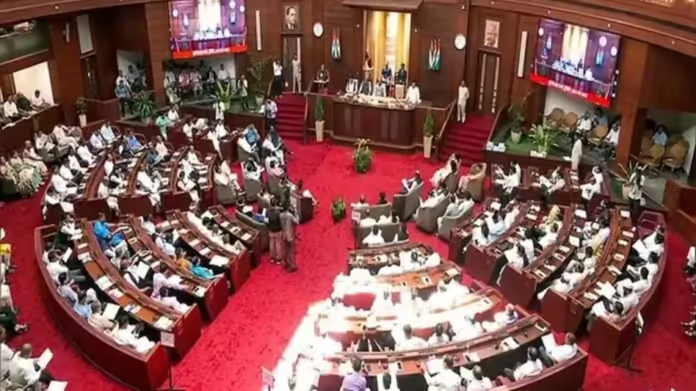On the final day of the Autumn session on Friday, the Assam Assembly approved significant amendments to two land-related laws and a vehicle taxation bill. These changes aim to address pressing issues related to land management and vehicle taxation in the state.
The Assembly’s approval marks a pivotal shift in Assam’s approach to land and vehicle regulation. Lawmakers debated and scrutinized the proposed amendments before reaching a consensus on their passage. The updated laws reflect the government’s intent to streamline processes and ensure more efficient management of resources.
One of the key amendments pertains to the Assam Land Revenue Regulation Act, which now includes provisions for easier transfer of land ownership and clearer guidelines for land use. The changes are designed to simplify the process for individuals and businesses, reducing bureaucratic hurdles that have often plagued land transactions in the state.
The amendment introduces a more transparent system for land registration, aiming to reduce disputes and increase accessibility for the general public. By enhancing the efficiency of land-related processes, the government hopes to stimulate economic activity and encourage investment in the region.
Additionally, the Assembly approved amendments to the Assam Land Acquisition Act. These changes focus on improving compensation mechanisms for landowners and ensuring fair valuation of land acquired for public projects. The updated law emphasizes the need for a more equitable approach to land acquisition, reflecting the concerns of affected communities and stakeholders.
The revisions also address the issue of land use for development purposes. The new regulations aim to balance developmental needs with environmental and social considerations, ensuring that land use policies align with sustainable practices.
In a parallel development, the Assam Assembly passed a vehicle taxation bill that introduces significant modifications to the existing taxation framework. The bill outlines new tax rates and procedures for vehicle registration and renewal, aiming to make the system more efficient and less cumbersome for vehicle owners.
The updated vehicle taxation framework includes provisions for online payment and streamlined registration processes. These changes are expected to reduce wait times and administrative burdens for individuals and businesses. By leveraging technology, the government seeks to modernize the vehicle registration system and improve overall user experience.
The bill also addresses issues related to vehicle emission standards and environmental compliance. It introduces incentives for vehicles that meet higher emission standards, encouraging the adoption of cleaner technologies. The amendments reflect the government’s commitment to promoting environmental sustainability and reducing the carbon footprint of the transportation sector.
Lawmakers emphasized that the passage of these amendments represents a significant step forward in addressing longstanding challenges related to land management and vehicle taxation. The changes are expected to have a positive impact on both individuals and businesses, fostering a more conducive environment for economic growth and development.
As the Assembly session concluded, there was a sense of optimism about the potential benefits of these legislative changes. The amendments are seen as a proactive response to the evolving needs of the state, aligning with broader goals of modernization and efficiency.
The implementation of these new laws will be closely monitored to ensure that they achieve their intended objectives. The government has pledged to provide necessary support and resources to facilitate a smooth transition to the updated regulations.
Overall, the approval of these amendments underscores the Assam Assembly’s commitment to addressing key issues affecting land and vehicle management. The changes reflect a forward-thinking approach to governance, aimed at enhancing transparency, efficiency, and fairness in the state’s regulatory framework.


